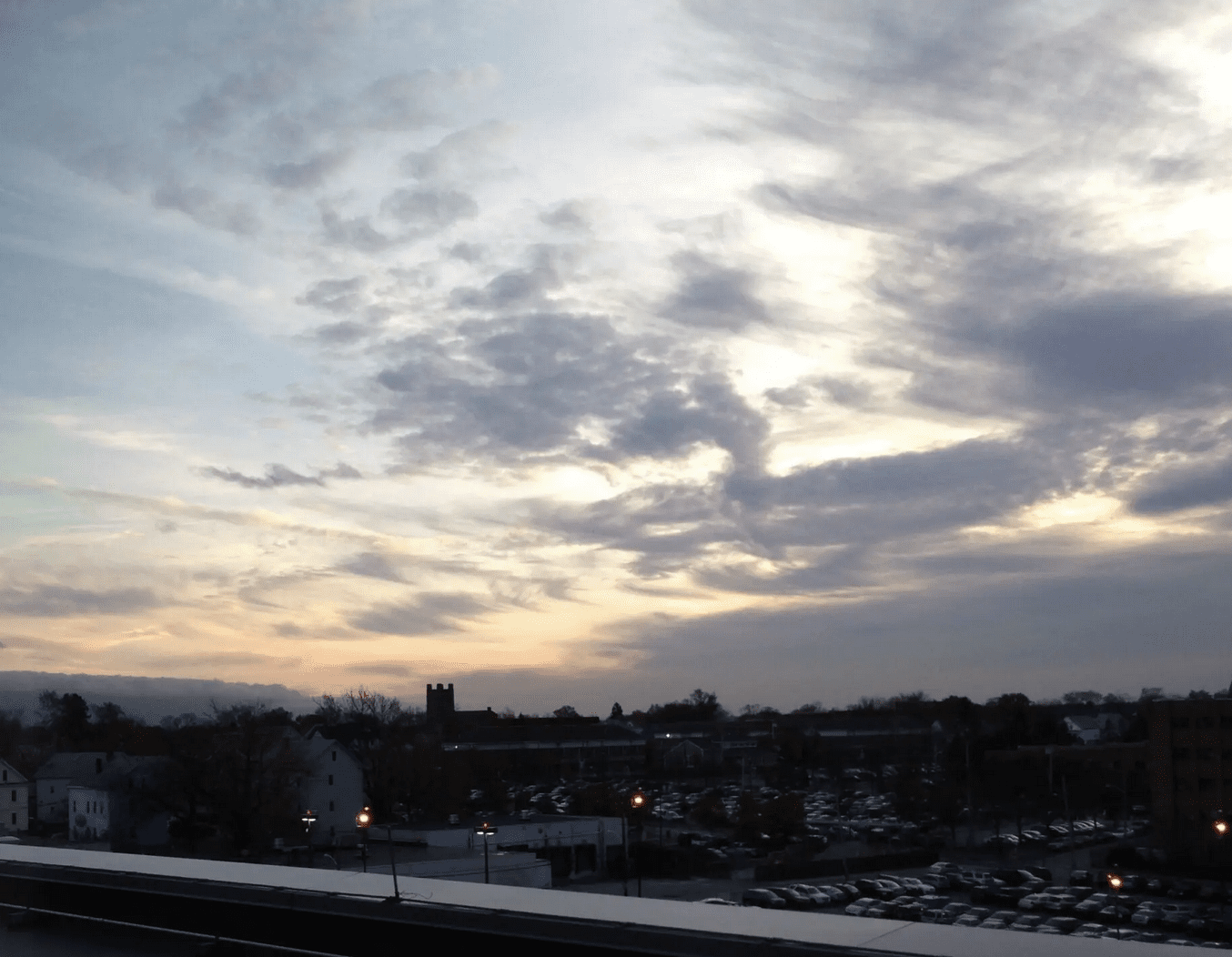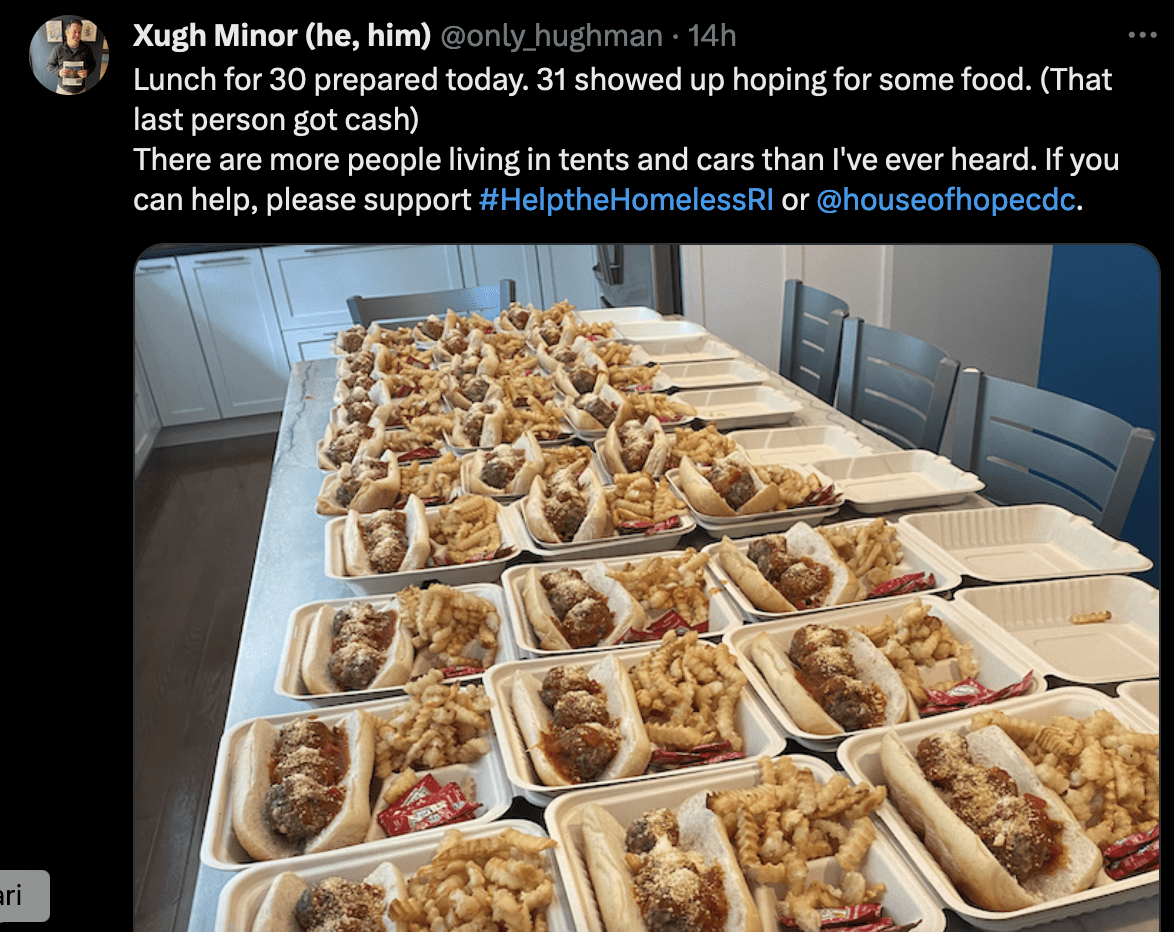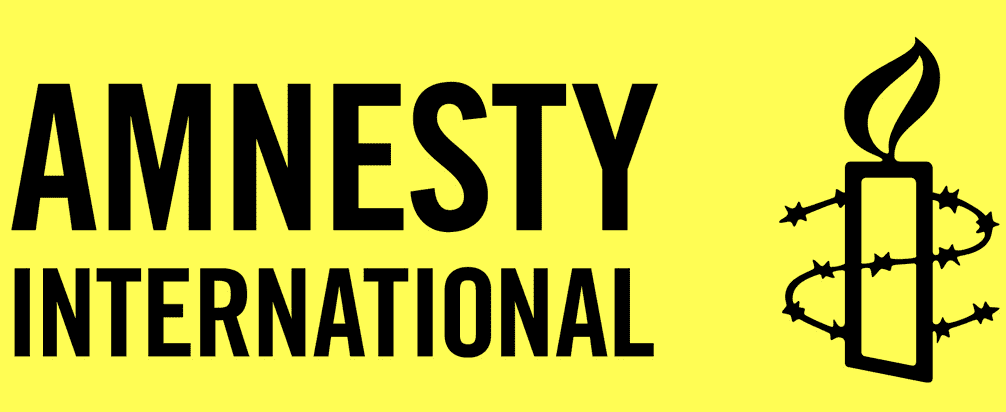Search Posts
Recent Posts
- Vinny Paz to be inducted TODAY into the International Boxing Hall of Fame – CES Boxing June 7, 2025
- In the News… quick recap of the week’s news (6.7.25) June 7, 2025
- Burn with Kearns: Strong without the spend: How scraps became strength tools – Kevin Kearns June 7, 2025
- Rhode Island Weather for June 7, 2025 – Jack Donnelly June 7, 2025
- How to advocate for threatened properties: The Heritage Alliance of Pawtucket June 7, 2025
Categories
Subscribe!
Thanks for subscribing! Please check your email for further instructions.

Homeless in RI: State update, encampments, Amnesty human rights charge, around US…
It’s been clear over the last month or so that tolerance for tent encampments for the homeless in Rhode Island, Massachusetts and around the country is decreasing. As a visual cattle prod to all planners to get going with alternative housing plans, we have watched encampments moved along, evicted, and in some cities or states, outlawed.
Cranston has successfully told an encampment in woods outside Chapel View to leave and cleaned the area. Another encampment on the Cranston/Providence line was moved from private property owned by Paolino Properties prior to a Tesla company announcement event. 3 encampments were moved from the Charles Street area – 2 on state property and 1 from private property, after the owner served legal notice to city officials.
Anecdotal conversations belie some comments from homeless advocates and advocacy journalists as person after person said they had somewhere to go (in one case to his mother’s right down the street), had housing vouchers, knew there were options, but chose to stay outdoors for a variety of reasons. Clearly, shelters that accommodate couples, pregnant women, people with pets were needed. Some refused because they would not be allowed to maintain their drug or alcohol items, and noted that there were no treatment services for drug or mental health issues to go to. Or they did not want to move from one city to the next, some protecting their panhandling locations. One man, outside the Marriott Hotel in Providence has been there over a year and has no desire to leave, with his area growing to include signage faced at those coming off the highway. One woman was moved from setting up tarps and sleeping bags in a Waterfire bridge area and in her opposition fell into the water and was rescued by city officials.
Why are we seeing more homeless encampments?
Certainly, our awareness has been increased about encampments. Homeless advocates have refused during the last winter months to provide addresses of the encampments to state officials so they could be helped with more direct services to get them off the streets. There is also some ambivalence as we hear about encampments such as Mass & Cass in Massachusetts and many on the West Coast. Legal challenges have arisen when people are on state property or the challenges of the legal rights to the unhoused to housing. Noticably, since the RI ACLU was involved in the RI State House issue around the holidays last year, that lead to the opening of the Cranston Street Armory, the legal advocacy group has not gotten involved again.
Advocacy agencies have taken a more proactive stance about protecting the “right” of the unhoused to live on any property they want in Rhode Island. While quietly distributing tents and tarps in prior years, they are now openly soliciting donations to provide these to those in need, saying that there is no housing available.
Agencies are soliciting donations for – and giving out – encampment provisions: tarps, tents, sleeping bags, and backpacks. A request sent out in May asking for money for these items is followed up with a comment 2 1/2 months later that there are ‘more homeless encampments’ than ever before. With no connection between the two.


House of Hope, widely described in some circles as “the good guys” – has been soliciting tents and sleeping bags as late as May of this year (left) and then lamenting more people living in tents or cars than ever before in August (right).
___
Update from Stefan Pryor’s office at Rhode Island Housing – from Joey Lindstrom – provided this update upon request – 8/19/23:
The Department of Housing is working hard this summer to bring new programs online that will expand housing opportunities for Rhode Islanders and provide much-needed emergency solutions for people experiencing homelessness. The FY24 budget that passed in June established several new programs for housing development, such as the state-level low income housing tax credit, the Priority Projects Fund, a proactive development entity, a fund for Transit-Oriented Development (TOD), and municipal support programs for housing-related infrastructure, staffing capacity, and support for homeless services.
We are working collaboratively with the City of Providence and other communities to see if there are potential locations that might be used for temporary structure. It is important to note that having a location is not enough. These would require municipal and service provider partnerships to ensure access to social services, health and mental health care, substance use treatment, sanitation, security, etc. We look forward to the continuing conversations with communities regarding the multiple ways we can create additional shelter and housing opportunities.
It should also be noted that the deadline for seasonal shelter proposals is August 31, and at that time we will begin to review which options will be funded by the Consolidated Homeless Fund Partnership, which is in the process of allocating more than $9.4 for services to prevent and address homelessness. In parallel, our staff has been working to identify new potential sites for emergency shelter to be used during the winter, and we have an ongoing dialogue with cities and towns about which locations will be feasible.
Beyond this work, the Department is also eagerly at work to expand our team. We have recently posted seven new positions out of the twenty-one that were approved in the budget, and we are excited to add capacity needed to carry out the work regarding and homelessness.
Kind regards,
-Joey Lindstrom, Rhode Island Department of Housing
___
New development: AmnestyPVD writes open letter to Mayor of Providence on encampment clearing:
Posted by Steve Ahlquist 8/20 on Substack:

AmnestyPVD (Amnesty International USA, Local Chapter 1016) released an open letter to the Office of Providence Mayor Brett Smiley in reaction to the “encampment sweeps” of unhoused residents and the human rights violations of vulnerable residents that are a part of them.
To Whom It May Concern:
Amnesty International USA, Local Chapter 1016, (AmnestyPVD) expresses grave concern at the news that the City of Providence, at the direction of your office, apparently denied the basic human dignity and legal rights of approximately fifty unhoused residents formerly of the Charles Street Tent Encampment. As you may know, Amnesty International is a nonpartisan, nongovernmental organization that has been working for human rights for more than 60 years. We have more than 10 million members internationally and hundreds of local groups in all 50 states in the US, campaigning for human rights in their cities, countries, and around the world. We affirm that access to affordable housing and shelter is an essential component of a fair and equal society, and is integral to realizing the full spectrum of human rights. We advocate for unhoused people to be treated with the respect and dignity that we would expect any individual to receive, on par with the consideration and rights granted to property owners.
In an age when affordable and low-income housing is all but nonexistent, evictions are higher than ever, resulting in severely reduced shelter space. Additionally, protections for those affected by COVID have all but disappeared. Society must stand up for our values of compassion and dignity for all. AmnestyPVD condemns any violation of displaced, vulnerable people in the strongest possible language.
We must hear from this administration to understand whether and to what extent such apparent violations have transpired. Many questions present themselves. What specific interventions, supports, and efforts to secure shelter did mayoral office staff make for the residents of the tent encampment? Were staff of state offices also involved in any such efforts? Was the staff of the nonprofit care community involved in relocating residents? Were all standard systems and protocols followed in this emergency effort and, if not, what specific deviations from policy did the staff make? Are there encampment resettlement protocols that amend and complement congregant and other indoor shelter systems? For instance, will ARPA dollars henceforth be allocated for hotel rooms for all people found to be sleeping in tents, and if not, why was extraordinary effort made in this case and not for others? When will the other hundreds of rough-sleeping residents using those systems secure temporary shelter or safety?
The chief area of concern for us is whether or not the rights and dignity of the residents were maintained during an ugly, violent process of eviction. The City is paying for all of this in labor costs at the police department, employing heavy machinery to destroy and clear people’s belongings, and in terms of public credulity in our civil institutions.
We have concerns about the balancing of property rights against the rights of the unhoused. Why was so much consideration paid to the absentee property owner? Was there any discussion of whether or not such a demand from his local agent to enforce trespassing laws on a notoriously unsecured property was in the taxpayers’ interest? Why did the property owner, via his local agent, complain after more than seven years only a few weeks ago? His property has been unmaintained, unenclosed, with broken fences and a history as a site for illegal garbage dumping, for at least seven years. It has been at times the most notable feature of the property. During this same time, people have been camping on it, more or less out of sight. What would compel an absentee owner to complain and make demands after seven years?
Many would call this property a “slum blighted lot” since the state it is in seems to directly contribute to creating a situation inimical to public health and safety. That means it violates Rhode Island General Law 45-31-8. Why was your office not previously in contact with the property owner or his agent, vis-a-vis fines and penalties for not maintaining and securing his lot? Are you interested in enforcing good neighbor laws against wealthy absentee property owners, or just standing by as a handful of police violate the legal rights of some of the most vulnerable individuals in your City? The unhoused at Charles Street Encampment were doing everything they were supposed to do while waiting for shelter and housing. What has the property owner done to uphold community standards? Answers to these questions are critical to ascertaining your administration’s commitment to legal and human rights in our city.
Many of our chapter’s leaders have left messages with staff in your office. We would appreciate a meeting to address our concerns at your soonest convenience. Thank you in advance for your time and careful attention.
Signed, – Amnesty International USA – Local Chapter 1016
___
More from Stefan Pryor – What is the plan as we head into colder weather? 8/8/2023:
WPRO’s Dan Yorke spoke to Pryor for over 30 minutes and this information is new. He has not held a press event since the closure of the Cranston Street Armory.
___
In Massachusetts the Governor is focused on providing housing and support to migrants coming into the state. The Mayor of Boston has said a “new plan” will be taken for the Mass & Cass resident homeless, which for the most part are not new immigrants to the country, most struggling with addiction and mental health issues:

The Governor of Massachusetts held a press conference to address the homeless situation, however, she only addressed the issue of migrant homeless, ending by requesting MA citizens with homes to take in anyone they can accommodate.
___
Charles Place encampment issue – area councilman, Justin Roias, blames WPRO Radio host, Gene Valicenti:
___
Woonsocket Park Benches
Media stories started about new “handles” being installed in the center of the city’s park benches that are scattered around the community. Accused of being used to discourage the homeless from laying on the benches, particularly after one man died in his sleep in the winter in Woonsocket last year, Mayor Baldelli Hunt expained why they were being installed, while stressing benches are used for sitting and not reclining.
NEW: Woonsocket Mayor Baldelli Hunt explains armrests on city benches for 3 reasons:
1. seniors/disabled can better stand up, sit down
2. encourage sharing of bench
3. new benches are shorter, 2 seaters, designed for sitting for 2, not for laying/sleeping
___
Woonsocket’s Dignity Bus
The bus came to town with a bit welcome from officials in Woonsocket, as it made its trip up from Florida. A short time later it was announced it had completely passed inspection with no repairs or adjustments needed. It may be operational now or within a few days, with the capacity of temporarily housing 30 individuals, to be run by the Community Care Alliance.
___
Pawtucket steps up to the plate
As the need grows, Pawtucket’s Mayor Grebien has announced he will seek to double the amount of emergency shelter and will work with Open Doors and others to find a second location for their homeless shelter and service program, which has been seen as successful for what it provides.
___
Charles Place – DaVinci Center – life has changed – there is hope
“It’s gone from a crack smokin’ place to a gathering spot for residents of Charles Place as a few gathered at the gazebo, and one or two smoked a cigarette,” said one source. Vin Marzullo has provided an update on the immediate benefit to the residents of the senior/disabled high rise and the DaVinci community center. Marzullo is quick to note that this doesn’t solve the plight of the homeless, but it has made it immediately better for those who live and gather in the Charles Street facilities.
an appeal to anyone with “an extra room or suite” to spare, Gov. Maura Healey asked Bay Staters to consider hosting a family in need of shelter as huge numbers of incoming migrants and needy families overwhelm state resources. It’s a strategy affordable housing advocates say could be deployed on a larger scale in a state facing both a massive shortage of homes and a lack of places to put them.
At last update, the homeless encampment people who did not take advantage of programs available to them were setting up about 2 miles up the road off Charles Street, however, this could not be visually confirmed.
___
Cranston Street Armory
The armory has closed. A potential opening as a multi-purpose economic engine for Providence failed, and it is now being offered to the city of Providence. The mayor has agreed, as long as there are state funds to support its development, and that is where the negotiation is at the moment. There are no plans to reopen the Armory as a shelter this winter.
___
NYC Homelessness
The Mayor wants an ordinance passed that allows other NY cities and towns to take in the homeless and they would be directed there. The city has identified an unused prison as a possible location for housing over 3,000 migrants. Hundreds of migrants are camping outside of city hotels, and hotels and housing areas are full.
___
Cincinnati homeless – new laws
About a year ago, Cincinnati passed a regulation “banning” homeless gathering in the downtown area. After a shaky start, the downtown is now absent of homeless, and they have not been pushed into other neighborhoods as feared, but the numbers have dramatically decreased and the downtown business and tourist area has been cleaned up and maintained.
___
What is homelessness?
People are homeless if they lack “a fixed, regular, and adequate nighttime residence” or reside “in an emergency shelter or a place not meant for human habitation, according to the U.S. Department of Housing and Urban Development (HUD). The agency’s definition also includes people who will imminently lose their primary nighttime residence and those fleeing domestic violence.
But the U.S. Department of Education’s more expansive definition also includes people who are doubling up or are living in motels, hotels, trailer parks or camping grounds because they can’t afford other accommodations.
___
The first day of Fall is 33 days away.
The first day of Winter is 122 days away.

To many issues with the migrants , as if we don’t have our own homeless issues to deal with we have to deal with the migrants and 3000? comon now either get it figured out or migrate together then a large land they/we can fend for cooking near a river of fish or make a slab city is what is going to arize.
very comprehensive. Thank you. Vin
Why claim that reader’s may leave a comment, when it’s obvious, no comments are being posted.
Comments are allowed after they are approved. Usually takes up to a few hours.
To Honest:
I’m going to defend RINewstoday. I have left comments and, despite my opinions, RINews has always printed them.
If you have a comment, make it. Nobody is sitting at a keyboard all day to see if there are comments. It’s news – they are out and about seeking any news.
LM